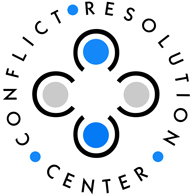The most important part of last week's episode of On The Media was probably the segment on how the Restorative Justice process can serve as an alternative to the broken prison system in the U.S. I highly recommend it. But the segment that followed, about what role Restorative Justice could play in resolving conflicts that happen online, was also intriguing, especially as someone who has been trained as a conflict mediator and participated in conflict resolution advocacy programs in the past. It got me thinking about what the one-off experiment on Reddit that Micah Loewinger and Lindsay Blackwell conducted might look like in wider practice.
Right now when two or more people are in conflict on Twitter, Facebook, Reddit or elsewhere, the most likely eventual outcome is that someone will be blocked, banned, muted or otherwise removed from the conversation, either by a participant or by a moderator of the service itself. As the On The Media episode notes, the best that social media companies seem to be able to come up with in this problem space is making it even easier to report or block someone. (And to be clear, I'm generally a supporter of users being able to block/mute someone else at will without having to explain themselves.)
But if anyone involved in or affected by the conflict was interested in a different outcome, how could they get there?
An idea I'm exploring here would be a bot that someone, either one of the parties or an observer, could mention to initiate a conflict resolution process with elements of the Restorative Justice approach included.
Continue reading "Restorative justice and resolving online conflict"


 The notion of "conflict resolution" is one of those things that is tempting to assume we all understand as well as or as much as we need to. We all have conflict in our lives, and we all make decisions every day about how we're going to deal with it: avoid it, engage it head on, active passive-aggressively about it, pretend to smooth it over but not really deal with it, commit an act of violence, and so on. But most of the time, no matter what course of action we choose, dealing with conflict is hard. It's stressful. It can be draining and debilitating, at a personal level but also for an organization or business or family as a whole. And even though we may have learned a lot about how to deal with it by now, that doesn't mean we don't need help sometimes. Thank goodness for the existence of the
The notion of "conflict resolution" is one of those things that is tempting to assume we all understand as well as or as much as we need to. We all have conflict in our lives, and we all make decisions every day about how we're going to deal with it: avoid it, engage it head on, active passive-aggressively about it, pretend to smooth it over but not really deal with it, commit an act of violence, and so on. But most of the time, no matter what course of action we choose, dealing with conflict is hard. It's stressful. It can be draining and debilitating, at a personal level but also for an organization or business or family as a whole. And even though we may have learned a lot about how to deal with it by now, that doesn't mean we don't need help sometimes. Thank goodness for the existence of the